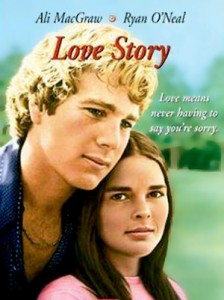 Google News shows over 5,000 links to stories about Lance Armstrong’s interview with Oprah Winfrey, part one of which was broadcast last night. I’ve read a few of the 5,000 stories and the consensus seems to be that Oprah was on her game and Lance was not. I watched the interview and would agree. Oprah was very good at what she does and Lance Armstrong was all too mechanical, wooden; still in control as he chose exactly what truth to spill and how to spill it. He won my sympathy at a couple of points in the conversation, but for the most part he lived up to his own self-assessment of being a jerk.
Google News shows over 5,000 links to stories about Lance Armstrong’s interview with Oprah Winfrey, part one of which was broadcast last night. I’ve read a few of the 5,000 stories and the consensus seems to be that Oprah was on her game and Lance was not. I watched the interview and would agree. Oprah was very good at what she does and Lance Armstrong was all too mechanical, wooden; still in control as he chose exactly what truth to spill and how to spill it. He won my sympathy at a couple of points in the conversation, but for the most part he lived up to his own self-assessment of being a jerk.
Whether it was a planned line or not, I have been thinking about one of the things this dethroned Tour de France champion said. Acknowledging that former friends and supporters have a right to feel betrayed (it would have been nice if he’d just said, “I betrayed my friends”), Armstrong then said, “I’ll spend the rest of my life trying to earn back trust and apologize to people.”
I hope Lance Armstrong does not spend the rest of his life trying to earn back trust and apologizing to people. The effort will be wasted.
A generation ago we were told, wrongly, that “love means never having to say you’re sorry.” Yes, one of the silliest lines every uttered in the history of film. And one of the most damaging thoughts to the health of human relationships. But neither does love mean saying you’re sorry for the rest of your life.
Lance Armstrong is 41 years old. Actuarially speaking, he has a lot of life still ahead of him. Let’s say he lives another 41 years. He’s got more to do than trying to win back trust and apologizing. He has children to raise and encourage, a girlfriend to love and a marriage to begin. He has friendships to build and causes far greater than his reputation to champion. He has a Creator to acknowledge and a Savior to meet. He has God to glorify and enjoy forever.
The Apostle Paul was a much bigger bully than the bully Lance Armstrong now admits to being. Paul literally bullied people to imprisonment and death.
Paul was probably around 30 years old when he met Jesus on that road to Damascus. By most accounts he would have been a little over 60 when he was martyred in Rome. Half way through his life, then, he realized that he had betrayed others and the God who loved him. And he came to know that, amazingly, this God whom he had betrayed forgave him and gave him places to go and things to do – a purpose and a mission that would leave the world forever changed for the better.
Paul never forgot who he had been or what he had done. “Foremost among sinners” he would call himself late in life as he reflected on his life of betrayal. He tells how Christ “judged me faithful, appointing me to his service, though formerly I was a blasphemer, persecutor, and insolent opponent.”
We’ll see the second half of Oprah’s interview with Lance Armstrong tonight. It’s been taped and judging by the first half, we will get more calculated confessions and nuanced apologies. Not a lot of trust built.
If Lance Armstrong were to ask for my pastoral advice on the living of the second half of his life, I’d suggest an unvarnished confession (“I betrayed my friends” not “they have a right to feel betrayed”). I’d would recommend enough humility – something Armstrong says he has a hard time coming by – to ask for forgiveness (I’ve searched the transcript of the interview and have found nothing close to an acknowledgment of the need for forgiveness; just a resolve that he will live strong enough to rebuild trust and keep on apologizing. It doesn’t work that way). I suggest that he go about living strong (or maybe not), and pray that trust might follow.
The bully who we know as the Apostle Paul once said, “forgetting what lies behind and straining forward to what lies ahead, I press on toward the goal for the prize of the upward call of God in Christ Jesus.” Not for a moment did Paul forget his blasphemy, persecution and insolent opposition to God and God’s people. In fact, he forgot the arrogance that he once had and the pride in his own ability that had kept him from acknowledging his need.
So, I’d pray that Lance Armstrong would forget his past as a win-at-all-cost competitor and his need to be in control. I pray that he would press on toward the goal for the prize not of first place in every race, but of the upward call of God in Christ Jesus.
And then go raise money to end cancer or build a cancer clinic in the inner city or the third world. Live the rest of your life to the glory of God, Lance.
Oh, one more thing, Lance. You actually don’t want to live strong. You want to live weak.
See you Sunday
